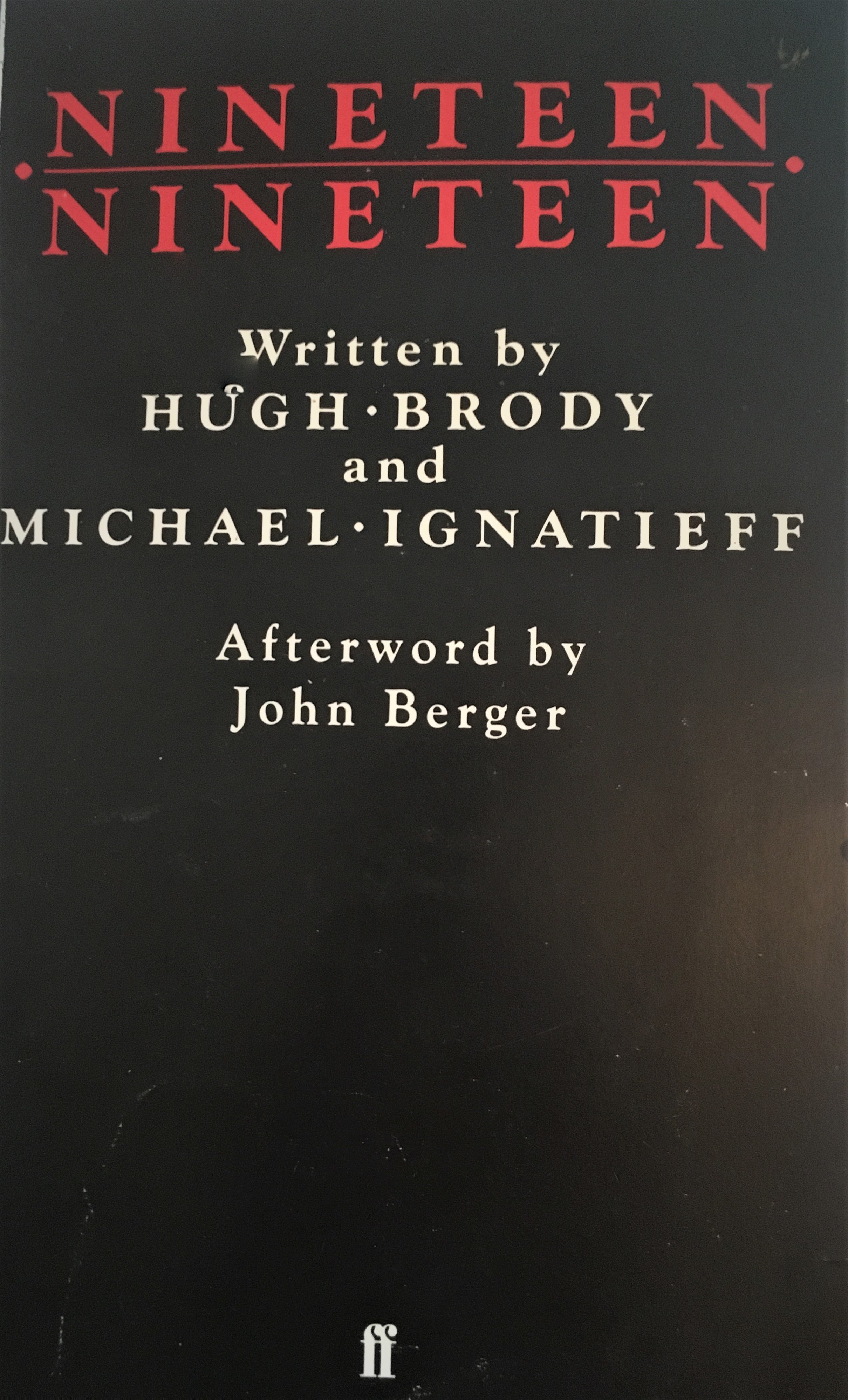Nineteen Nineteen
Faber and Faber, 1985
Publication date: Dec 1 1985
Paperback: 96 pages
ISBN-10: 0571137148
ISBN-13: 978-0571137145
Extract from John Berger afterword:
Nineteen Nineteen speaks directly to what we know about life, composed inextricably of the most intimate movements of the heart, accident, and the remorseless movement of history.
Of the creative media, the cinema is the most naturally adapted to deal with the folded past, carried within each of us like linen stacked in a cupboard. How often has consciousness been compared with a film, yet how seldom, has the cinema properly exploited this aptitude. In Nineteen Nineteen the stacked linen is unfolded with a terrible precision, layer by layer, and we see it laid out as the sheet of the present. Sophie and Alexander are lying on the beds that they and accident and history have made.
The true stories of our time have to be able to reconcile a pile of clothes in a drawer with world historical upheavals. Such reconciliations pose many problems for the storyteller. The originality of Nineteen Nineteen as a film is that it offers an example of how this problem can be addressed and of how a story must speak to what we know in our hearts
Reviews
"Nineteen Nineteen speaks directly to what we know about life, composed inextricably of the most intimate movements of the heart, accident, and the remorseless movement of history.” —John Berger
“With Nineteen Nineteen, cinema’s relationship to psychoanalysis has come of age. This is the first great film about the subject.” —Phillip French, The Observer
“[Nineteen Nineteen] resonates and endures in memory in a way that no other film on the psychoanalytic process that I have seen ever has." —Leonard Quart, writing in Cineaste
“[Nineteen Nineteen] is immensely exciting…a movie for grownups. For men and women. For anyone who feels and thinks. For anyone who has tried to love. For anyone who has survived the 20th Century." —Jerry Tallmer, the New York Post
"Nineteen Nineteen emerges is a small, polished gem about large, ragged subjects.” —Jan Hoffman, The Village Voice
“Mr. Brody seems to have found a cinematic language for the process of thought and memory.” —Nina Darnton, New York Times


